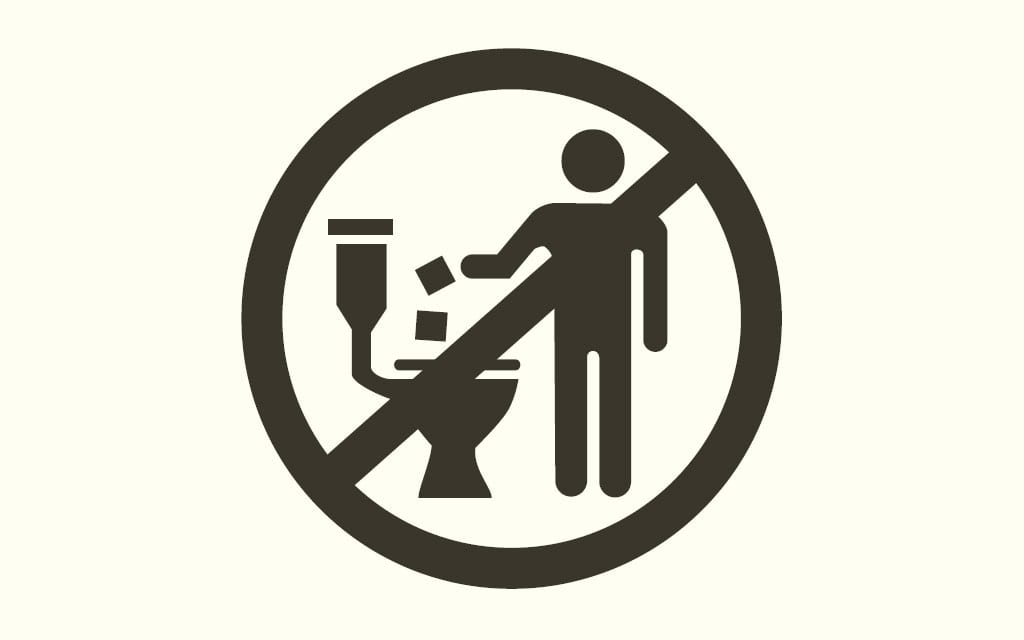Septic systems are an important part of our everyday lives. They allow us to dispose of our wastewater in an environmentally friendly way and don’t strain our municipal sewer systems. Although there are many other places to dispose of trash within the home, sometimes people choose to use their toilet or garbage disposal for items that don’t belong in these pieces of equipment.
Sure, a toilet is designed to dispose of certain things, but there are items that, when flushed, can do more harm than good. Homeowners often make mistakes in putting things into a septic system that can cause damaged pipes and clogs and change the balance of the good bacteria needed to keep the septic system running smoothly.
What is a Septic System?
A septic system is an on-site waste disposal system that processes and eliminates wastewater from the home. Septic systems are composed of a septic tank and a drain field. Wastewater from the fixtures enters the septic tank, where solids settle to the bottom and oil and grease float to the top. Bacteria decompose the settled solids, and the liquids are discharged into the leach field where soil filters out impurities before recharging groundwater. A septic tank system, like all other systems and components of the home, has many moving parts and features, and for it to function optimally, it needs to be properly maintained.
Here’s a list of the top six things you should avoid flushing into your home’s septic system:
Non-Biodegradable Items
One of the most important things never to flush into a septic system? Anything that’s not biodegradable. Bacteria can’t break down items like cigarette butts, cat litter, rubber, and hair in the septic tank. They will eventually clog it or get stuck around the motor of the septic system, causing it to break. Many people use wipes when they use the bathroom as an alternative to toilet paper, but these items aren’t safe to flush; they should be disposed of in the trash.
Grease and Oil
Though it may seem easy to dump these things down the sink when washing your pans and pots, they do much more harm than good. Your septic tank isn’t going to be able to break the grease and oil down, and it could potentially lead to the grease and oil blocking the holes in your septic system’s pipes and preventing it from draining wastewater. Instead, pour used grease into an old coffee can or milk carton, let it solidify, then throw it away.
Generally, putting any kind of food into a septic tank can lead to buildup in your pipes.
Strong Disinfectants
A properly functioning septic system relies on helpful bacteria to break down waste; therefore, putting these chemicals into the system in large amounts can damage the septic tank’s helpful bacteria. A decrease in bacteria within the holding and treatment tanks can increase solid waste buildup. If you need to disinfect your drains, use a septic-safe cleaner or boiling water instead.
Medication
Like disinfectants, septic systems need bacteria to break down solid waste. When you flush medications down the toilet, it can damage or kill septic tank bacteria. Many of these medications have high concentrations of antibiotics, so when flushed down the toilet, they will harm the balance that is required within the tank. This can lead to a backup in your septic system.
Coffee Grounds
Although these won’t be flushed, they often find their way into a garbage disposal, in turn, into the septic tank. Their texture makes it difficult for the bacteria to break them down, putting your septic system in danger as they build up over time. If you have a septic system, it’s best to dispose of coffee grounds in the trash.
Tampons and Other Feminine Hygiene Products
These should never be flushed as they can absorb water and expand, which can block the septic tank’s exit pipe. They also don’t break down as toilet paper does, so they will sit in the septic tank and over time, create a sludge buildup.
Wrapping it up
While many things commonly get put into the septic system that can cause issues, some are the most common things people may not think twice about flushing or putting into the garbage disposal. The more you know about your septic system and how it should function, the less likely you will experience issues like braking, clogging, or backups into the home, which will require costly repairs.
The best way to know whether or not your septic system is fully functional is to rely on the services of septic tank inspectors at Vireel Septic And Excavation, who can provide you with a detailed septic tank inspection report after each visit.
Along with telling homeowners like you about the state of your septic system, we will also be able to provide you tips about the things that can, cannot, and should not be introduced to this septic system. Email us at info@vireel.ca or call us toll-free at 1-855-962-1562 to learn more about our services.


